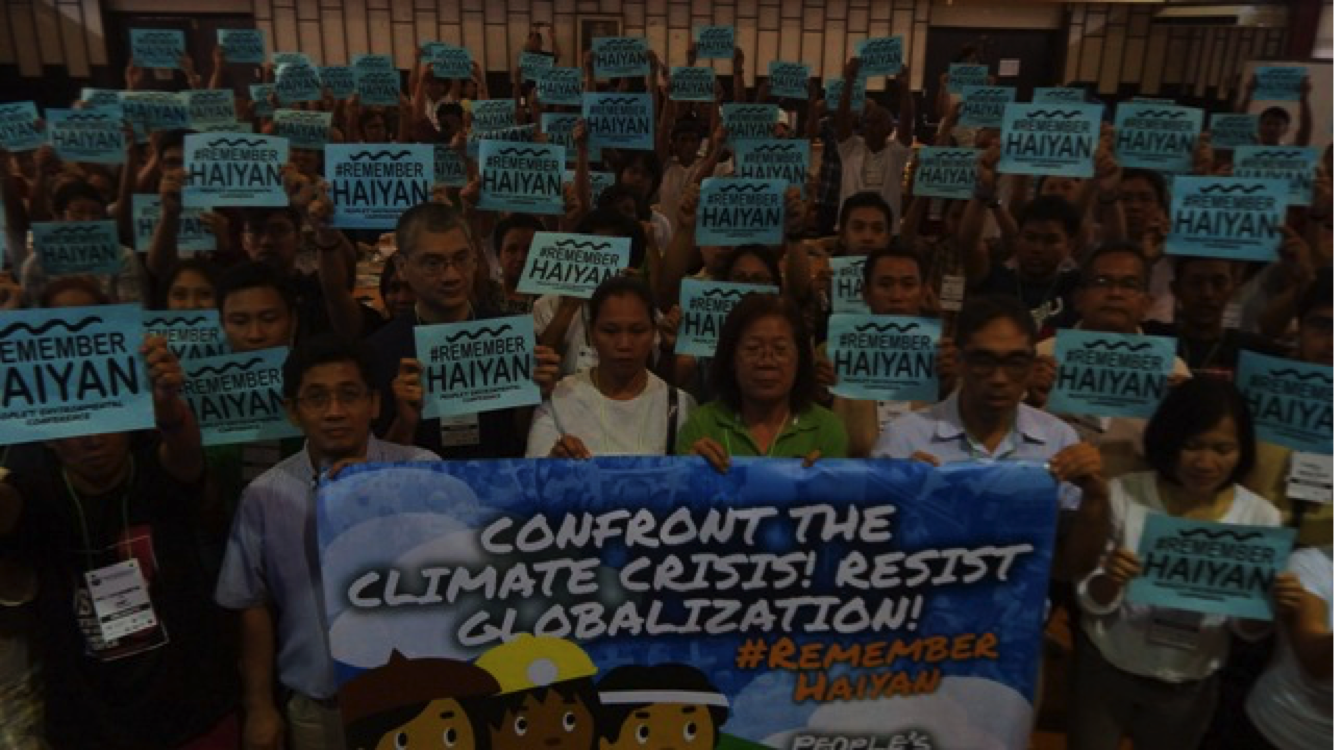Labor Group Joins #RememberHaiyan, Calls for Justice Amid Disasters, Worsening Climate crisis

The Center for Trade Union and Human Rights joins the Filipinos and the world in remembering the tragedy brought by super typhoon Haiyan on its second year commemoration this November 8.
“Two years after super typhoon Haiyan ravaged central Philippines, communities, especially of the poor and workers, are still unable to fully recover because of inept rehabilitation efforts by the government and poverty. Worse, we continue to face the same danger of super typhoons and long droughts because of climate change,” said Daisy Arago, Executive Director of CTUHR.
On November 5, CTUHR and the Kalikasan People’s Network for the Environment organized the first Philippine Environmental Conference(PEC) with the theme “Confronting the Climate Crisis” wherein the People’s Climate Platform was presented. The PEC is timely as it drumbeats the demands of marginalized and frontline communities concerning climate change within the context of the upcoming Asia Pacific Economic Cooperation (APEC) summit in the Philippines this November and the United Nations Conference of Parties (COP) 21 in Paris, France this December.
According to the group, workers are among the groups at high risk to the adverse impact of climate change as workers lose jobs and sources of income when big disasters happen.
“In the context of prevalent contractualization, low wages, high commodity prices and very low unionization rate, workers are pushed further to deeper poverty when climate-related disasters happen,” Arago added.
In Southern Leyte, hundreds of workers in Philphos are still unable to go back to work because the company is not yet fully operational. Banana workers in plantations in Compostela Valley hit by typhoon Bopha (Pablo) in 2012, also lost work days that lasted for months because of massive devastation.
Arago also cited CTUHR’s study that revealed the women workers are urban poor are subject to more suffering and financial pressure because of repeated typhoons and flood. Communities inundated by typhoon Ketsana (Ondoy) in 2009 were again inundated by floods brought about by prolonged monsoon rains in 2011 and 2014.
“Since women are often employed in informal or contractual jobs plus women have been relegated to do household work and responsibilities, women workers and urban poor feel more pressure and burden during calamities compared to male counterparts,” Arago said.
The group stressed that if the climate crisis the world is facing will not be resolved, another Haiyan, Pablo or Ondoy is bound to happen which spells more tragedy to the working poor especially in high risk countries like the Philippines.
“Climate change is an issue of the poor and the workers. It is ultimately an issue of social justice.” Arago said.
The group reiterated that vulnerable marginalized communities must have increased capacity to adapt to climate change which can only happen if neoliberal policies that attack basic rights and humane living standards are abandoned.
“As we remember Haiyan and its impact to poor, we also call an end to the climate crisis. We must fight our right to development at the same time transform economies toward societies that are sustainable and just.” Arago added.###
